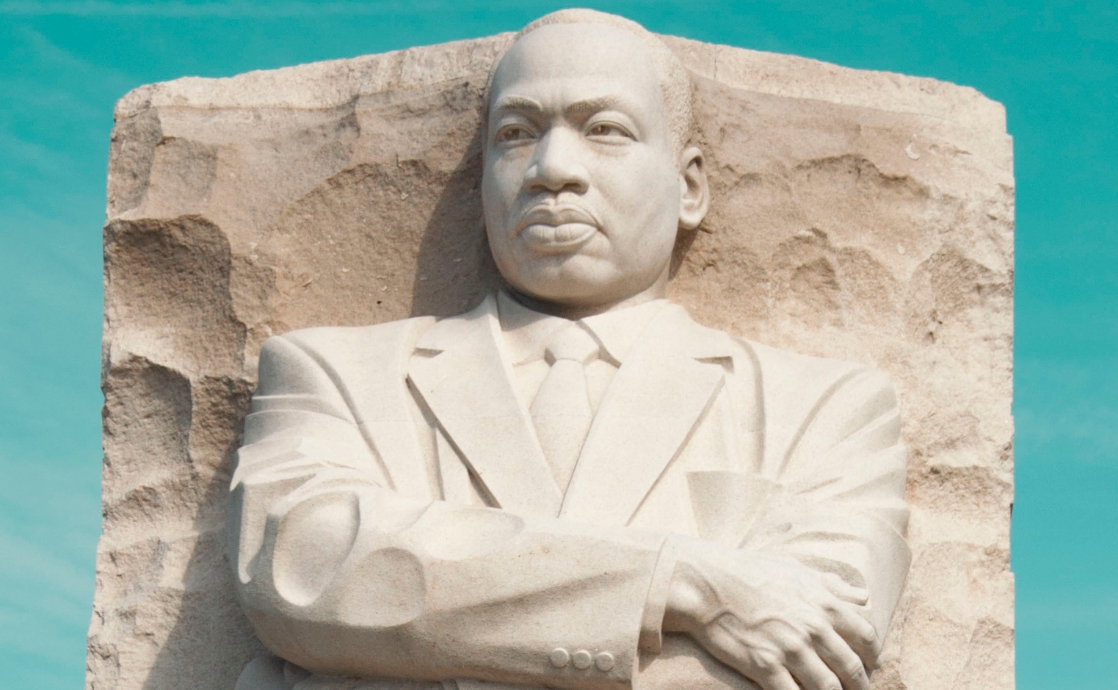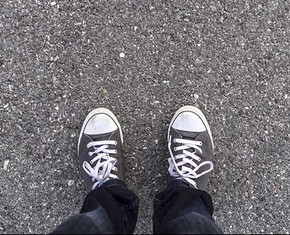The views expressed in our content reflect individual perspectives and do not represent the authoritative views of the Baha'i Faith.
Fifty-years ago in Chicago, the Reverend Dr. Martin Luther King, Jr. gave one of the most eloquent and revolutionary speeches of his entire career – and that is saying something. Sadly, most haven’t heard it.
We’ve all heard “I have a dream” and “I’ve been to the mountain-top,” and undoubtedly we’ll hear them again today on Martin Luther King Day, as we do every year now.
But have you heard Dr. King discuss “the dreamers of a dream that dark yesterdays of mans inhumanity to man would soon be transformed into bright tomorrows of justice”? Or paid attention as he said “When machines and computers, profit motives and property rights are considered more important than people the giant triplets of racism, economic exploitation and militarism are incapable of being conquered”?
Those stirring ideas come from Dr. King’s insightful and inspiring 45-minute address called The Three Evils of Society, which he gave to the National Conference on New Politics in August of 1967. In his speech, he asked the assembled anti-racism and anti-war activists in the audience to help him eradicate three major evils in American society: “the sickness of racism, excessive materialism and militarism.”
RELATED: That Time Martin Luther King, Jr. Shocked the World
After identifying these three serious ills, Dr. King said “Not only is this our nation’s dilemma it is the plague of western civilization.”
For Baha’is, that description resonates deeply within the Baha’i teachings. Shoghi Effendi, the Guardian of the Baha’i Faith, writing in his 1941 book The Promised Day is Come, identified three very comparable evils in strikingly similar terms:
The chief idols in the desecrated temple of mankind are none other than the triple gods of Nationalism, Racialism and Communism, at whose altars governments and peoples, whether democratic or totalitarian, at peace or at war, of the East or of the West, Christian or Islamic, are, in various forms and in different degrees, now worshiping. Their high priests are the politicians and the worldly-wise, the so-called sages of the age; their sacrifice, the flesh and blood of the slaughtered multitudes; their incantations outworn shibboleths and insidious and irreverent formulas; their incense, the smoke of anguish that ascends from the lacerated hearts of the bereaved, the maimed, and the homeless.
The theories and policies, so unsound, so pernicious, which deify the state and exalt the nation above mankind, which seek to subordinate the sister races of the world to one single race, which discriminate between the black and the white, and which tolerate the dominance of one privileged class over all others – these are the dark, the false, and crooked doctrines for which any man or people who believes in them, or acts upon them, must, sooner or later, incur the wrath and chastisement of God.
Let’s examine those three idols, one by one, to see how they parallel Dr. King’s concepts.
Nationalism
First, Shoghi Effendi cited the evils of nationalism, which he said “deify the state and exalt the nation above mankind.” He also accused “the politicians and the worldly-wise” who sacrifice “the flesh and blood of the slaughtered multitudes” by leading the world into nationalistic wars. In strikingly similar language, Dr. King said “We are offered a tax for war instead of a plan for peace,” and “A nation that continues year after year, to spend more money on military defense then on programs of social uplift is approaching spiritual death.”
Dr. King’s outspoken and public anti-war activism, which began in April of 1967 with his famed “A Time to Break Silence” speech at Riverside Church in New York City, signaled his departure from the sole issue of racism and his emergence as a transformative social figure in the arena of peace. That cause – universal peace – is central to the Baha’i teachings, and has been since Baha’u’llah proclaimed his new Faith in 1863, more than a century before. Baha’u’llah wrote that universal peace is one of the two chief purposes of the Creator and His messengers:
God’s purpose in sending His Prophets unto men is twofold. The first is to liberate the children of men from the darkness of ignorance, and guide them to the light of true understanding. The second is to ensure the peace and tranquillity of mankind, and provide all the means by which they can be established.
Racism and Racialism
The second of the idols Shoghi Effendi identified – what he called “racialism,” a term that preceded and later became the word “racism” – he clearly defined as any theory or policy which seeks: “… to subordinate the sister races of the world to one single race,” and “which discriminate[s] between the black and the white …”
In 1941, “racialism” referred primarily to the racial and eugenic theories of the Nazis, who definitely attempted to “subordinate the sister races” to a so-called “master race” of Aryans. The fact that Shoghi Effendi specifically identified discrimination between Black and White peoples in the global West closely matches what Dr. King said in his speech a quarter-century later:
Racism can well be, that corrosive evil that will bring down the curtain on western civilization. … If America does not respond creatively to the challenge to banish racism, some future historian will have to say, that a great civilization died because it lacked the soul and commitment to make justice a reality for all men.
Dr. King’s language here – identifying racism as a “corrosive evil” – hauntingly echoes Shoghi Effendi’s description, in his 1936 book The Advent of Divine Justice, of the institutions of western civilization:
… each of the successive crises in the fortunes of a decadent age exposes more convincingly than the one preceding it the corrosive influences that are fast sapping the vitality and undermining the basis of its declining institutions.
Like Dr. King did later, Shoghi Effendi specifically called out the ongoing crisis of racism, especially the virulent American variety – which he referred to as “that cancerous growth of racial prejudice, which is eating into the vitals of an already debilitated society.” He, just as Baha’u’llah and Abdu’l-Baha did previously, urged all people, regardless of race or color, to make every attempt to surgically remove that metastasizing tumor before “the curse of racial prejudice … stigmatizes the vast majority of its people.”
Materialism and Communism
In the third of the idols Shoghi Effendi identified, and in the final evil Dr. King focused on in his speech, they respectively used the labels “communism” and “excessive materialism.” On the surface, those may initially seem divergent. But listen to the way Dr. King defined his term:
In a sense, Communism is a judgment of our failure to make democracy real and to follow through on the revolutions that we initiated. Our only hope today lies in our ability to recapture the revolutionary spirit and go out into a sometimes hostile world, declaring eternal opposition to poverty, racism and militarism.
RELATED: World Brotherhood — and Dr. King’s Most Controversial Speech
In strikingly like-minded ways, Shoghi Effendi defined communism in The Promised Day is Come as: “The theories and policies, so unsound, so pernicious, which … tolerate the dominance of one privileged class over all others …”
Shoghi Effendi concluded his explication of the three idols of our society with this soul-stirring description of “the pregnant truths proclaimed by Baha’u’llah:”
Contrasting with, and irreconcilably opposed to, these war-engendering, world-convulsing doctrines are the healing, the saving, the pregnant truths proclaimed by Baha’u’llah … truths which should be regarded as the animating force and the hallmark of His Revelation: “The world is but one country, and mankind its citizens.” “Let not a man glory in that he loves his country; let him rather glory in this, that he loves his kind.” And again: “Ye are the fruits of one tree, and the leaves of one branch.”
Dr. King concluded his speech about the three evils in our society with this profound insight:
I want to say to you tonight that I intend to keep these [three] issues mixed because they are mixed. Somewhere we must see that justice is indivisible, injustice anywhere is a threat to justice everywhere and I have fought too long and too hard against segregated public accommodations to end up at this point in my life, segregating my moral concerns.
As we celebrate Dr. King’s birthday on this day, we would do well to recognize him as not only a remarkable Southern Baptist preacher, a great orator, and signal figure in the fight for human rights, but also as one of the true heralds, whether he was conscious of it or not, of the world-redeeming message of Baha’u’llah.
















Comments
Sign in or create an account
Continue with Googleor